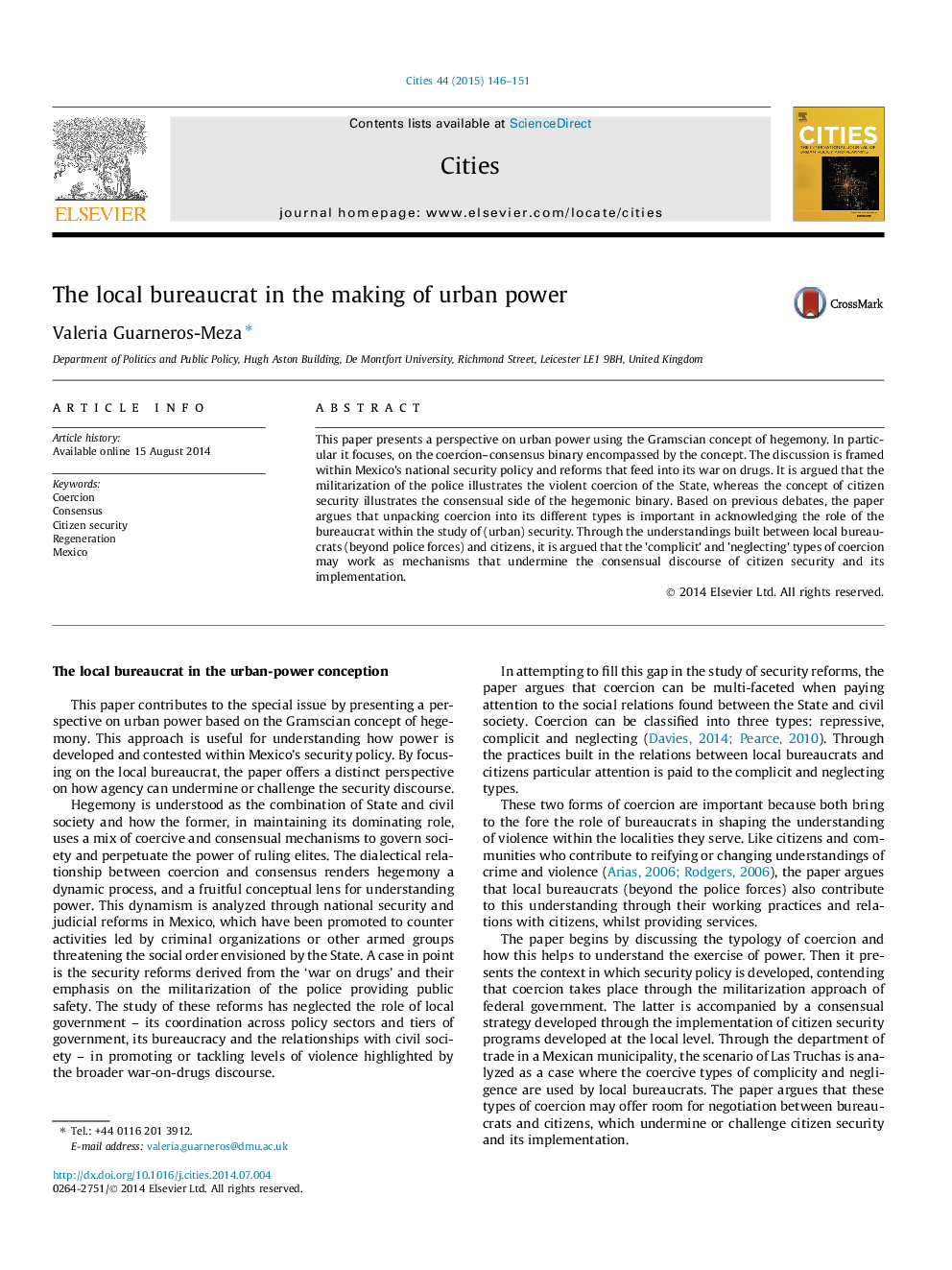| Article ID | Journal | Published Year | Pages | File Type |
|---|---|---|---|---|
| 1008307 | Cities | 2015 | 6 Pages |
•Coercion is multi-faceted in security policy.•It can be repressive, complicit or neglecting.•The latter two highlight the role of the local bureaucrat in citizen security.•Through both types of coercion, the local bureaucrat undermines national security.
This paper presents a perspective on urban power using the Gramscian concept of hegemony. In particular it focuses, on the coercion–consensus binary encompassed by the concept. The discussion is framed within Mexico’s national security policy and reforms that feed into its war on drugs. It is argued that the militarization of the police illustrates the violent coercion of the State, whereas the concept of citizen security illustrates the consensual side of the hegemonic binary. Based on previous debates, the paper argues that unpacking coercion into its different types is important in acknowledging the role of the bureaucrat within the study of (urban) security. Through the understandings built between local bureaucrats (beyond police forces) and citizens, it is argued that the ’complicit’ and ’neglecting’ types of coercion may work as mechanisms that undermine the consensual discourse of citizen security and its implementation.
